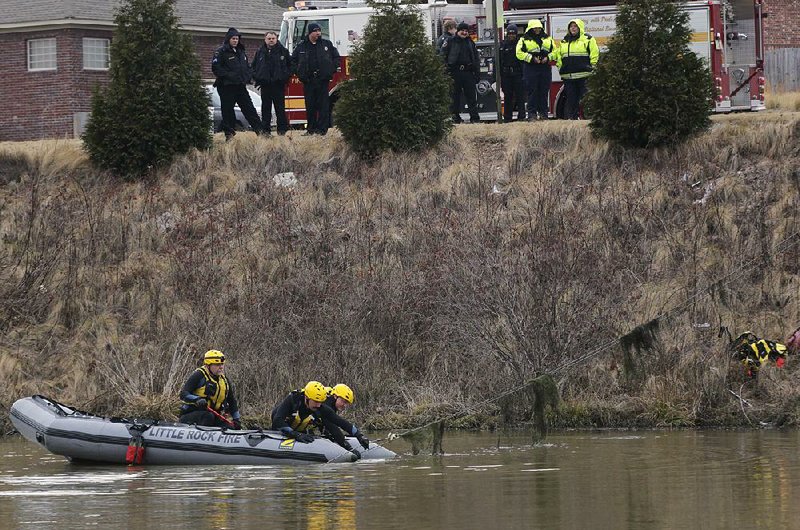The city of Little Rock is not immune from being sued for damages in the case of a botched 911 call four years ago, the Arkansas Supreme Court ruled Thursday.
City Attorney Tom Carpenter had argued the city could not be sued for damages in the case because it did not have insurance, while Carter Stein, attorney for Dayong Yang, argued the city had failed to prove that it did not have insurance.
Stein, citing a previous court case out of Helena-West Helena, argued the city needed to provide an affidavit proving it did not have insurance. Carpenter argued that Stein had already been told by city officials the city did not have insurance.
Dayong Yang, father of the late Le Yang and husband of the late Jinglei Yi, sued the city and others for damages in 2013 after his wife died while waiting for emergency help and his son suffered severe brain damage. His son died two years later because of injuries suffered in the accident.
Thursday's Supreme Court opinion determined whether the city and Metropolitan Emergency Medical Services can be tried for damages in the case. The court found that the court record was "devoid of proof of liability coverage for the City and its employees."
"It was incumbent upon them, and not Yang, to plead and prove that it was entitled to that immunity due to a lack of insurance," Justice Josephine Linker Hart wrote in the majority opinion.
Because MEMS did not dispute proof of its insurance supplied by Yang, the service can be sued for damages only within what the insurance provides, the court ruled.
That reverses Pulaski County Circuit Judge Tim Fox's decision to deny MEMS its requested summary judgment for statutory immunity beyond its insurance coverage. Yang had requested the service be liable to damages beyond those policies because it had not proven it didn't have additional insurance. But the Supreme Court ruled the MEMS issue was "only a matter of statutory interpretation" because the insurance provided by Yang established undisputed facts.
Justices Rhonda Wood and Shawn Womack issued an opinion concurring in part and dissenting in part. The justices agreed with the denial of the city's request but disagreed with granting summary judgment to MEMS to limit its liability to the insurance presented in court "as we should hold both entities to the same standard," Wood wrote.
The Supreme Court opinion allows the city 17 days to petition for rehearing before sending the case back to circuit court, where parties can request to proceed to trial. Carpenter said Thursday evening that he would likely wait for the case to go back to circuit court and then file an affidavit swearing that the city doesn't have insurance.
"I was a little surprised by the court," he said, "because this was different that the ones earlier in that we had made an admission that there was no insurance."
Yang's attorney, Stein of McMath Woods PA, said he looked forward to taking the case to trial.
Yi , 39, drowned Jan. 14, 2013, after the sport utility vehicle she was driving hit a patch of ice and careened into a pond off Cooper Orbit Road.
Yi called 911 from inside the SUV and spoke with a MEMS operator for about 12 minutes until her car submerged. But city dispatcher Candace Middleton failed to input the call into the Computer Aided Dispatch System, so police and fire crews didn't know about the emergency call until they were notified by a supervisor, according to the lawsuit.
Rescue crews from the Little Rock Fire Department arrived at the pond 31 minutes after Yi's first call and did not enter the water for another 12 minutes.
Yang sued the city, the Police Department, MEMS and Middleton on Aug. 8, 2013, on behalf of Le, seeking damages for Yi's death and Le's injuries, and alleging negligence by the city in training and hiring Middleton. The city disputed the claims of systematic problems with the 911 system.
On Dec. 4, 2015, Fox refused to dismiss the lawsuit after the city filed a motion seeking a judgment in its favor. Fox's order did not contain an explanation for his decision. In his order, Fox denied the city's request seeking dismissal of the negligence claims, but granted dismissal requests from city employees and departments regarding punitive damages and constitutional-rights violations.
Later that month, the Arkansas Supreme Court agreed to hear the city's appeal of Fox's decision on the negligence claims. Briefs were filed by each side in 2016, and oral arguments were held Jan. 19.
Metro on 02/10/2017

